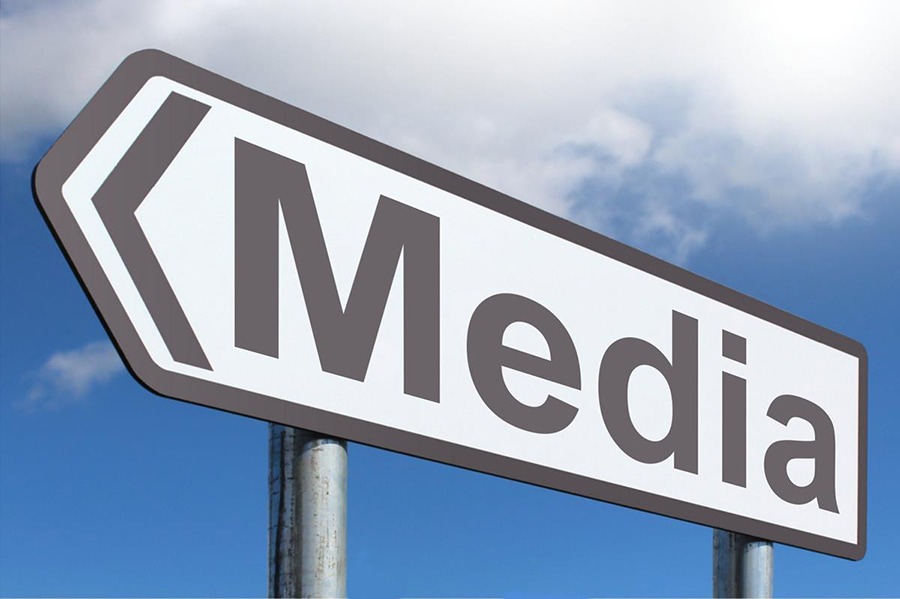Media industry stakeholders call for urgent, industry-led self-regulation framework to ensure press freedom, accountability

Published :
Updated :

The news media industry must take the lead to establish a structured and industry-driven system for self-regulation to safeguard press freedom, strengthen accountability, rebuild public trust, and uphold high journalistic standards.
The issue was raised during three consultation meetings organized by Media Resources Development Initiative (MRDI), engaging stakeholders from across the country, according to a media release.
Editors, newsroom leaders, working journalists, union and association leaders, media development practitioners, academia and civil society representatives attended the consultations on “Media self-regulation in Bangladesh: Legal frameworks, global practices and pathways to accountability” held on November 8 and 15, 2025, in the capital.
Highlighting the persistent challenges to press freedom in Bangladesh ranging from biased reporting, suppression of dissent, ownership concentration, punitive laws, weak enforcement of professional codes, lack of grievance redressal mechanisms and inadequate protections for journalists, they said journalism is facing an existential threat. Without a clear and functioning self-regulation framework for media, the situation may deteriorate further.
Participants underscored that implementing the recommendations by the Media Reform Commission (MRC) is not the responsibility of the government alone, rather lasting reforms will require coordinated and sustained action from all stakeholders led by the news media industry itself.
They called on news organizations to formally adopt ethical and operational standards and emphasized that self-regulation must be adopted as the central framework guiding the news media industry -- not only as a safeguard but also as a survival strategy in the future.
Participants stressed that a credible self-regulation system would protect news outlets and journalists from undue influence, ensure greater accountability to the public and help address audience grievances in an environment overwhelmed by misinformation and disinformation.
A robust, context-specific framework, they said, is essential to restore credibility and strengthen professional oversight, accountability and address grievances across the country.
They demanded an industry-driven code of conduct not only for journalists, but also for owners and editors.
They noted that the absence of a sustainable business model and financial transparency resulted in an unfair competition in the news media industry, ultimately encouraging unethical journalism.
Drawing from their day-to-day newsroom realities, many participants spoke of a growing “web of mutual distrust” among the government, news media and the audience.
Political and corporate pressures have repeatedly forced journalists to compromise on ethical practices, weakening independence and deepening fear within newsrooms.
Participants also called for stronger internal accountability within news organizations.
They advocated for the establishment of the proposed Independent Media Commission as a long-term structural solution.
Media ownership and the misuse of licensing authority by past governments were also discussed, with demands for greater transparency and accountability through standardized audits, mandatory public disclosure of information and regular open dialogues between news outlets and audiences.
A key recommendation was the establishment of an independent ombudsperson styled as public editor, readers editor, or engagement editor within news outlets to receive complaints, uphold standards and offer a structured mechanism for accountability toward the audience.
Participants also emphasized the need for clear guidelines defining the authority, responsibilities and overall mandate of the ombudsperson.
Participating stakeholders also called on political parties to include strong commitments in their election manifestos covering press freedom, professional independence for journalists, necessary legal reforms, and guarantees of safety and security.
They emphasized that these commitments must not be forgotten once the parties come to power.
Stakeholders also agreed that depending solely on government initiatives, such as the Media Reform Commission’s recommendations, would not deliver any meaningful change.
Reforms must be driven from within the sector, and success by a few pioneering outlets could inspire wider adoption. Given the financial fragility of many news outlets, participants underscored the need for cost analysis, sustainable funding models and legal support to make media self-regulation feasible.
The consultations produced a set of actionable suggestions, which MRDI is compiling to develop a policy brief to support development of a practical, credible and collective self-regulation model.
MRDI plans to handover the policy brief to the editorial bodies and owners’ associations and work with other stakeholders.
The consultations were organized in partnership with The Asia Foundation under its Promoting Effective, Responsive, and Inclusive Governance in Bangladesh (PERI) Programme with support from Foreign, Commonwealth & Development Office of the UK.
The discussions were organized as part of MRDI’s Strategic Action Plan on Advocacy for Media Reform in Bangladesh (2025–2030), the release adds.


 For all latest news, follow The Financial Express Google News channel.
For all latest news, follow The Financial Express Google News channel.